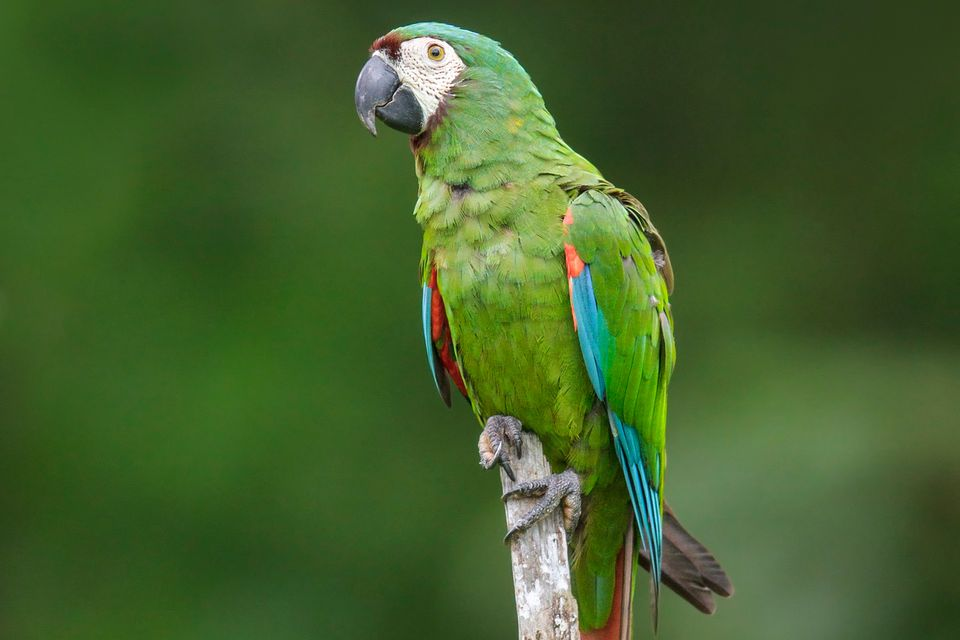Severe Macaw

Description
The chestnut-fronted macaw or severe macaw (Ara severus) is one of the largest of the mini-macaws. It reaches a size of around 45 cm (18 in) of which around half is the length of the tail.
They can be found over a large part of Northern South America from Panama south into Amazonian Brazil and central Bolivia.
Their lifespan is listed as anything from 30 to 80 years of age.
The chestnut-fronted or severe macaw is mostly green in colour with patches of red and blue on the wings. The head has a chestnut brown patch just above the beak. The beak is black and the patches around the eyes are white with lines of small black feathers. It is the only one of the miniature macaws that has lines of feathers in the bare patches around its eyes. In the wild their typically gregarious personality can become more aggressive at puberty giving them the name Severe. This tendency can be curbed in captivity but the species requires significant handling to make a tame pet. It is 45–50 cm (17.5–19.5 in) long and weighs 300–410 g (11–14 oz).
Scientific Name
Ara Severus
Country Of Origin
Northern South America from Panama south into Amazonian Brazil and central Bolivia.
Size
45 cm (18 in)
Life Expectancy
30 to 80 years
Noise Level
Loud
Talk / Trick Ability
Very Good
Characteristics
The outgoing severe macaw can become little comedians when taught tricks and phrases early on. They enjoy an active household. Owners find these pet birds to be sweet and gentle, and they can become good, loud talkers Though severe macaws are mini macaws, they are active pet birds and should be in a larger cage, so that they have plenty of room to move.
Behavior / Health Concerns
Severe require a diet that is higher in fat than other parrots, so provide a healthy diet that consists of pellets, fresh fruits, vegetables, whole grains and the occasional nut.They are prolific chewers and are susceptible to overgrown beaks, so provide plenty of hard toys for them to chew on. They are also susceptible to papillomas, proventricular dilatation disease (PDD), polyomavirus, psittacosis and vitamin-A sensitivity. Severe macaws may bond closely to an individual, so socialize them well in order to keep your bird friendly around a variety of people.